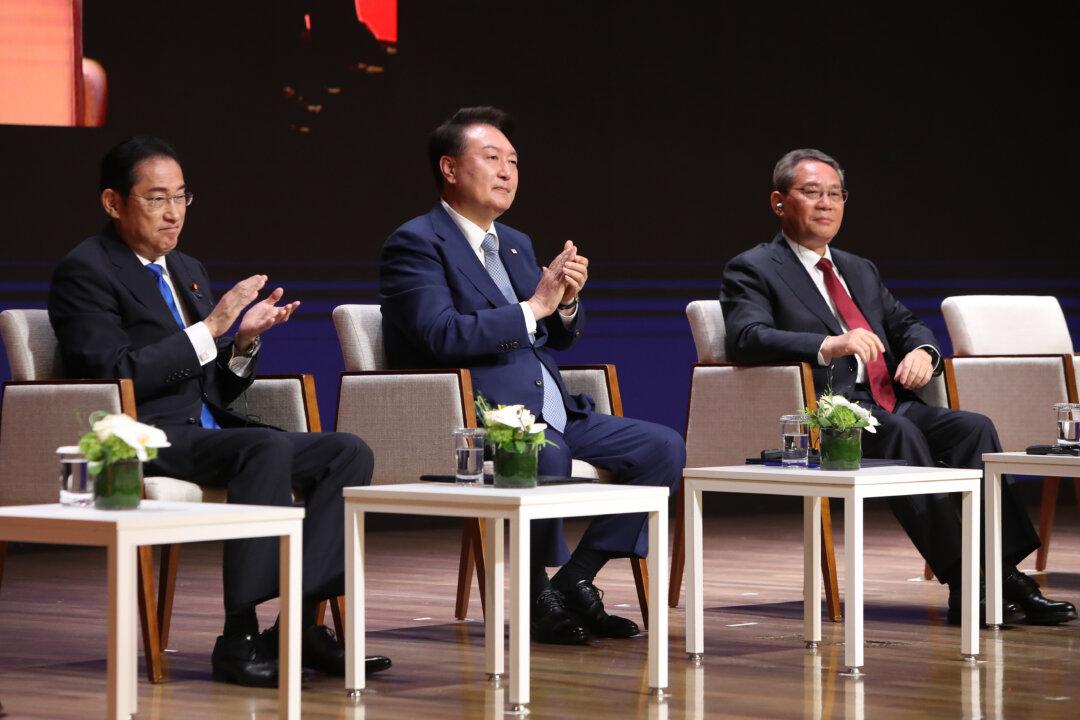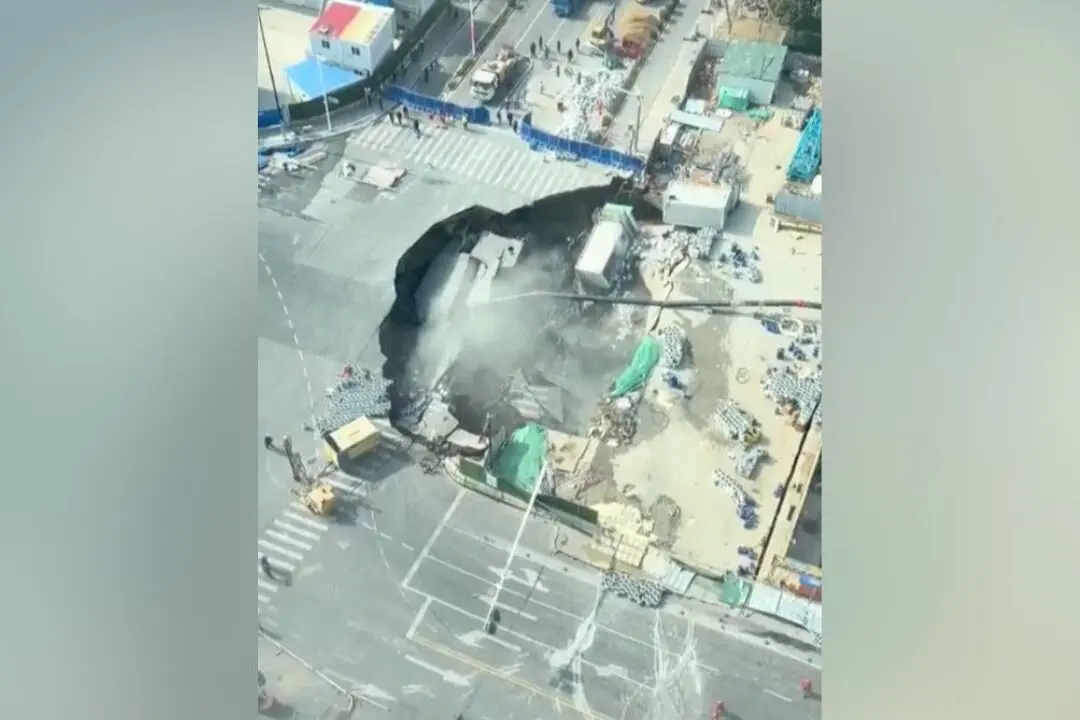China, Japan, and South Korea have agreed to increase cooperation, after leaders of the three Asian neighbors held their first summit in more than four years in Seoul, South Korea.
Chinese Premier Li Qiang, South Korean President Yoon Suk-yeol, and Japanese Prime Minister Fumio Kishida agreed to “institutionalize” the three countries’ cooperation through regular high-level trilateral meetings and ministers’ summits, according to a joint statement issued after a three-way talk on May 27.




